Philosophy Statement
God created many people, with different cultures, languages and religions. These factors change and vary geographically and continuously throughout time.
Paul exhorts us to be all things to all people; Social Studies give students a chance to learn about “all people”. Learning about the past and different cultures prepares them to make wise choices for their countries and the future.
Also, in exploring the religions, values, and beliefs of other cultures, students will better understand the need for a savior in a fallen world, and how to relate Jesus to people of other cultures.
Course Objectives
In this history course students will learn about world events and cultural change after 1700 and how these have shaped the world today (ESLR: SCW). Students will analyse causes and effects of these events as well as studying the impact of important individuals (ESLR: ET). Students will develop the skills required to write extended arguments explaining the cause or effect of events such as revolution and war (ESLR: NLL; ET; DC). Students will learn how to undertake independent research using the internet and school library to prepare and present detailed, in-depth presentations about a character, place or event of interest to them in the wider context of the historical events studied (ESLR: DC; NLL). Students will learn to evaluate primary and secondary evidence and to produce balanced arguments based on that evidence (ESLR: ET; DLL). Students will learn to consider and debate the worth and legitimacy of political systems in light of the Bible (ESLR: RUC; DC) and to trace the hand of God in His story of the world (RUC). There will be a focus on European events as they have been the powers that have dictated major world events in the 20th century.
Textbook
History of the World by Little, Perry, Scholl, David, Harris, Von Lave (Houghton Mifflin)
Materials
Textbook supplemented by a range of primary and secondary source material obtained from the school library and from the internet. Sources include evidence from literature, propaganda, music, film and architecture.
Time Allotment
50 minutes per day, 5 days a week
Course Content
- Revolutions
- Industrialisation
- Imperialism
- World War I & II
- The world after World War II
Evaluation
Homework – 30%
Quizzes/Tests – 30%
Projects – 30%
Class participation – 10%




